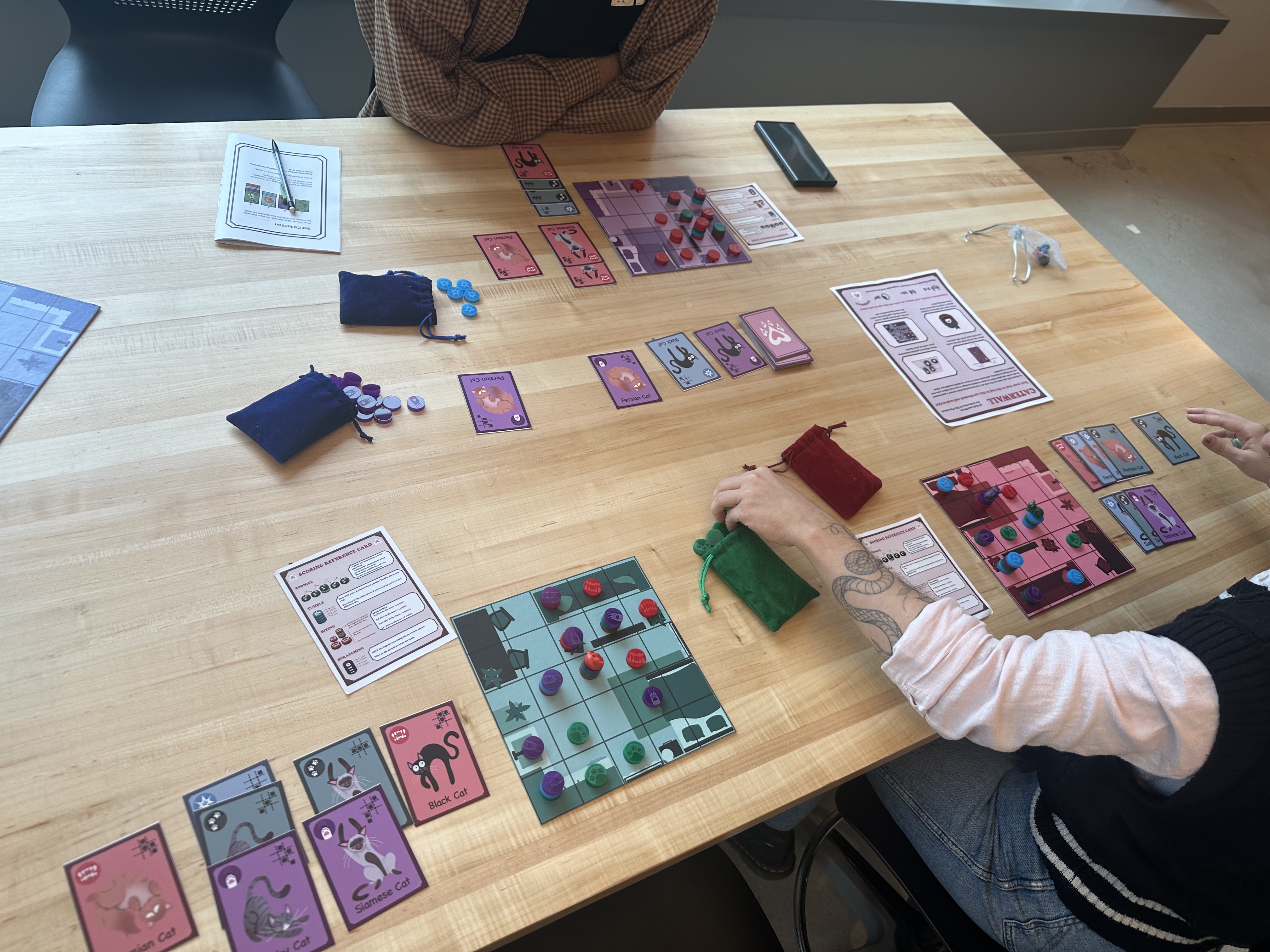

Avitium is a turn-based card battler RPG made in Unity and developed in collaboration with Iwo Kmiecik and Kisa Rodriguez from August 2024 to May 2025 as our senior capstone project for Pratt Institute's BFA Game Arts program.
I acted as lead game designer, programmer, and UX designer, designing and implementing the card-based combat system and a tricktaking minigame. This included the development of a deckbuilding mechanic to allow the player to change their deck and two enemy AIs that can have different decks and stat layouts dynamically swapped in. I also implemented the UI, dialogue, pathfinding, camera, and cutscene systems, as well as Ink to use for our narrative system.

Caterwall is a 3D roll-and-write board game for 2-4 players, playable in 30-60 minutes, developed in collaboration with Iwo Kmiecik over the course of six weeks.
I acted as lead game designer, contentrating on systems design, including designing the overall gameplay, functionality of the cards, and balancing the points distribution across the four different kinds of cards. The goal of the game is to collect as many points as possible by layering different colored pieces, representing damage done to an apartment by a cat. Caterwall's core mechanics center around open drafting, set collection, and tile placement. I was also responsible for physical manufacturing of the board game pieces.
Solanum is a turn-based card battler RPG made in Unity and developed in collaboration with Iwo Kmiecik, Kisa Rodriguez, and Tea Maxwell initially over the course of two months. Solanum served as the basis of development for Avitium.
I acted as lead game designer and developer, designing the card game via a paper prototype and later implementing it into Unity, which included the development of a four-class class system with different decks for each class, a system that auto-repopulates your hand based off of a 20-card inventory, as well as the development of a competitive enemy AI. I also implemented Ink to use for our narrative system. As UX designer for the game, I designed the wireframes and also was responsible for the creation and implementation of interaction design.
Simulation is a VR game/interactive art piece about the idea of "living in a simulation" (and subsequently breaking out of it) made in Unity and developed in collaboration with Soph Katsivelos and Arshia Jaiswal over the course of eight weeks. It is a site specific experience designed to be played on a Meta Quest 2 VR headset in Pratt Institute's spatial computing room.
I designed the gameplay and handled the gameplay framework, which included setting up passthrough in-engine, scripting in-game interactions, particularly spawning in the throwable cube, the puppets' reactions to being hit with the cube, and the destruction of passthrough walls upon collision with a cube.
Improv Night is a QTE-based minigame made in Unity and developed in collaboration with Jasper Hahn over the course of 72 hours for Global Game Jam 2024, centered around the theme "make me laugh".
I designed and implemented the gameplay, which centers around hitting the space bar in response to a QTE prompted by an audience member in order to quip back with a (meme-inspired) joke, as well as handled sound design, which was intended to mimic the jazzy feel of a comedy club. Improv Night was awarded "MOST HONKTASTIC" game at the Pratt Game Arts 2024 Global Game Jam site.